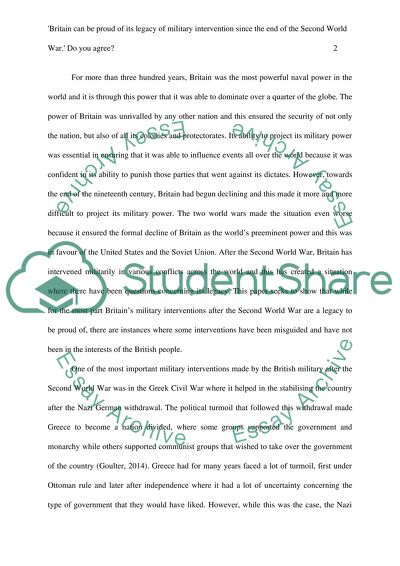Cite this document
(“'Britain can be proud of its legacy of military intervention Essay”, n.d.)
'Britain can be proud of its legacy of military intervention Essay. Retrieved from https://studentshare.org/social-science/1676874-aposbritain-can-be-proud-of-its-legacy-of-military-intervention-since-the-end-of-the-second-world-warapos-do-you-agree
'Britain can be proud of its legacy of military intervention Essay. Retrieved from https://studentshare.org/social-science/1676874-aposbritain-can-be-proud-of-its-legacy-of-military-intervention-since-the-end-of-the-second-world-warapos-do-you-agree
(&Apos;Britain Can Be Proud of Its Legacy of Military Intervention Essay)
&Apos;Britain Can Be Proud of Its Legacy of Military Intervention Essay. https://studentshare.org/social-science/1676874-aposbritain-can-be-proud-of-its-legacy-of-military-intervention-since-the-end-of-the-second-world-warapos-do-you-agree.
&Apos;Britain Can Be Proud of Its Legacy of Military Intervention Essay. https://studentshare.org/social-science/1676874-aposbritain-can-be-proud-of-its-legacy-of-military-intervention-since-the-end-of-the-second-world-warapos-do-you-agree.
“&Apos;Britain Can Be Proud of Its Legacy of Military Intervention Essay”, n.d. https://studentshare.org/social-science/1676874-aposbritain-can-be-proud-of-its-legacy-of-military-intervention-since-the-end-of-the-second-world-warapos-do-you-agree.


